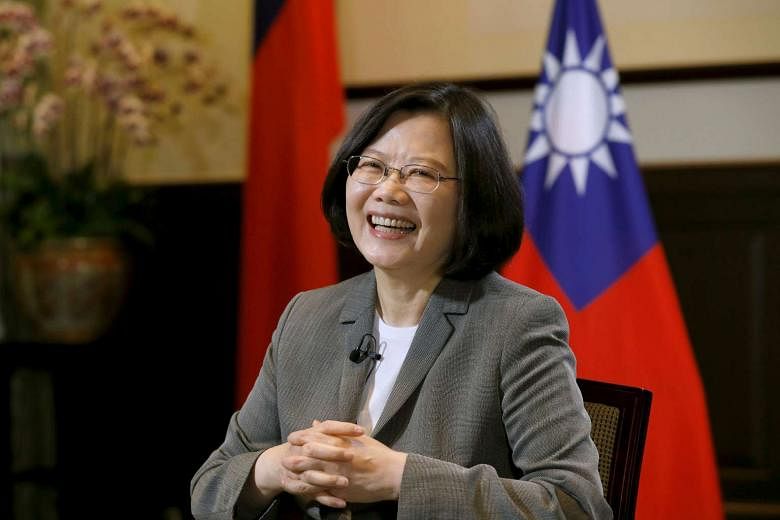TAIPEI (THE CHINA POST/ASIA NEWS NETWORK) - President Tsai Ing-wen called on mainland China to work with Taiwan to open up a new form of interaction to preserve cross-strait peace - pretty words that amount to nothing substantive.
In an interview published on Wednesday, Tsai broached a new approach toward Beijing based on "new realities, new consultations and new forms."
Taiwan's leader emphasised that maintaining order in the Taiwan Strait required both sides to work together - and was not tantamount to one side "providing the correct answers." Both sides needed to provide space and goodwill by taking a joint "questionnaire" on how ties should proceed.
While we should give Tsai and her government the time and opportunities to clarify these vague notions, policy specifics are something that has been ill-afforded the people of Taiwan since the Democratic Progressive Party (DPP) took power last year.
To put it bluntly, the administration is trying to swap a greyhound for a wiener dog. Cross-strait relations have remained a challenging issue for Tsai as she approaches the one-year anniversary of her presidency. China has since cut off official lines of communication as a reaction to her administration's refusal to accept the so-called "1992 Consensus" as the basis for cross-strait relations.
While Beijing's rapacious motives need constant verification, since May 2016 it has not included any new demands on the DPP government other than returning to the basis of how cross-strait relations have been conducted under former president Ma Ying-jeou.
The problem with Tsai's latest moves to move cross-strait relations forward is that they don't include anything that would attract Beijing to let up on its current stance toward shunning Taiwan. Ironically, the "new realities" - brought on by Tsai's decision to forsake the "1992 Consensus" - are what Taiwan must work with now, and the president should signal clearly to the people whether she believes her policies are worthy of continuation.
In the past year, the government has tried to convince the population that cross-strait policies need reevaluating.
Overdependence on the Chinese economy was said to be incorrigible state of affairs, and the "1992 Consensus was framed as a trap rather than a flexible arrangement.
Confident that she could ride the surge of pro-Taiwan sentiment behind the coattails of a Trump presidency, Tsai's gamble to engage Trump has materialised into something else: it has weakened Taiwan's bargaining position and made it the odd-man out in the delicate triangle of Beijing-Washington-Taipei relations.
The one-year mark of Tsai's inauguration offers the ideal moment for careful introspection and reevaluation of cross-strait policies.
Diversification of economic investment and sources of tourism are indeed sound policies.
But these objectives are also compatible with stable relations with China based on mutual trust and reciprocity, as well as strengthening ties with the United States. While Tsai may be despondent about achieving such a precarious balancing act, it's worth remembering that this complicated feat was accomplished under Ma's administration.
We are already aware of the reasons behind current cross-strait impasses and there is no need to rephrase them or repackage them for domestic consumption.
What the Tsai administration needs to show now is either its courage and resolve to follow through with its ideological projects or its wisdom and humility to accept a course correction.
The China Post is a member of The Straits Times media partner Asia News Network, an alliance of 22 news media entities.

